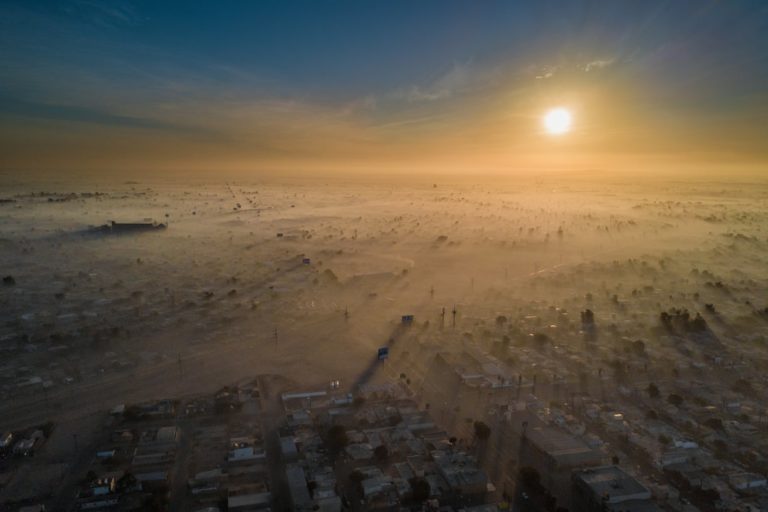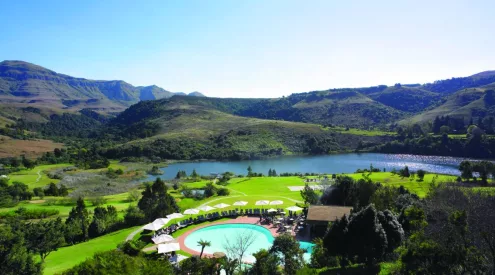Climate experts warn that the goal of limiting global warming to 1.5 degrees Celsius is slipping out of reach as nations fail to set more ambitious targets despite months of record-breaking heat on land and sea. The EU-funded Copernicus Climate Change Service (C3S) reported that average global surface air temperatures exceeded the 1.5C threshold for several days in early June, marking the first time this has occurred in the northern hemisphere summer. Sea temperatures also reached new highs in April and May.

Picture: Getaway gallery
The urgency of the situation is emphasized by climatologist Sarah Perkins-Kirkpatrick from the University of New South Wales, who states that time is running out because change takes time. As the climate envoys from the two largest greenhouse gas emitters prepare to meet next month, China’s capital, Beijing, experienced record-breaking temperatures, while extreme heatwaves struck the United States. Parts of North America saw temperatures 10 degrees Celsius above the seasonal average, with widespread smoke from forest fires enveloping Canada and the US East Coast, resulting in hazardous conditions. The carbon emissions from these fires were estimated to be a record-breaking 160 million metric tons.
In highly climate-vulnerable regions such as India, deaths surged due to sustained high temperatures, and Spain, Iran, and Vietnam also experienced extreme heat, raising concerns that last year’s deadly summer could become a regular occurrence. Although countries agreed in the Paris Agreement of 2015 to aim for a long-term temperature rise within 1.5C, the World Meteorological Organization predicts a 66% likelihood that the annual mean temperature will surpass the 1.5C threshold for at least one year between now and 2027.
Both land and sea temperatures have been rising, with El Nino events and other factors intensifying the warming effect. Global average sea surface temperatures reached 21C in late March and have remained at record levels for April and May. Australia’s weather agency warned that sea temperatures in the Pacific and Indian oceans could be 3C warmer than normal by October. Piers Forster, a professor of climate physics at the University of Leeds, identified global warming as the primary factor but also blamed El Nino, the decline in Saharan dust over the ocean, and the use of low-sulfur shipping fuels for exacerbating the warming trend. The combination of these factors represents a ‘quadruple whammy’ impacting the oceans, signalling a preview of future conditions.
The ecological consequences of rising sea temperatures are already evident, with thousands of dead fish washing up on Texan beaches and heat-induced algal blooms causing the deaths of sea lions and dolphins in California. Warmer seas may lead to reduced wind and rainfall, creating a vicious cycle that intensifies the heat further, according to Annalisa Bracco, a climatologist at the Georgia Institute of Technology. Even though this year’s elevated sea temperatures are caused by specific circumstances, the long-lasting ecological impacts could persist due to the slow response and heat retention of the ocean.
Climate experts highlight the increasing extent and frequency of extreme weather events, including devastating droughts and a rare, deadly cyclone in Africa. However, the Worldwide Fund for Nature expressed concern over the lack of progress on key issues like fossil fuels and finance during the recent climate talks in Bonn. This lack of momentum raises worries ahead of the upcoming COP28 climate talks in Dubai. Li Shuo, Greenpeace’s senior climate adviser in Beijing, expressed disappointment with the detachment of the talks from the outside reality. Talks between the United States and China, scheduled to resume, are seen more as a trust-building exercise than a catalyst for significant breakthroughs in negotiations. The prevailing political circumstances are not conducive to substantial commitments from either side.
Follow us on social media for more travel news, inspiration, and guides. You can also tag us to be featured.
TikTok | Instagram | Facebook | Twitter
ALSO READ: In hot water: Italian Spa Crawl















